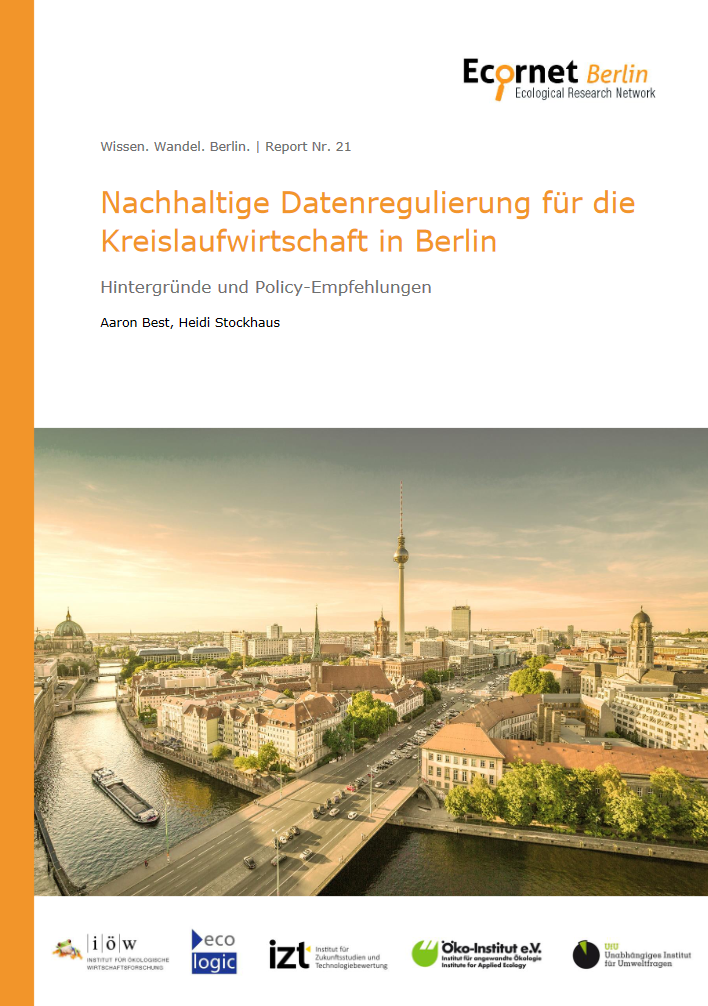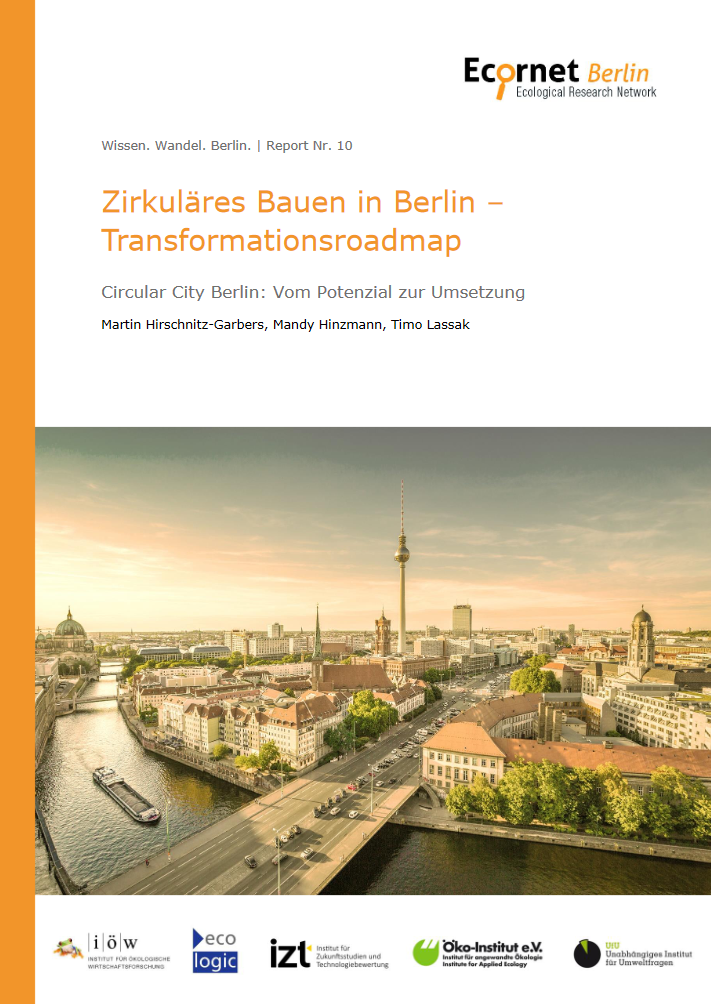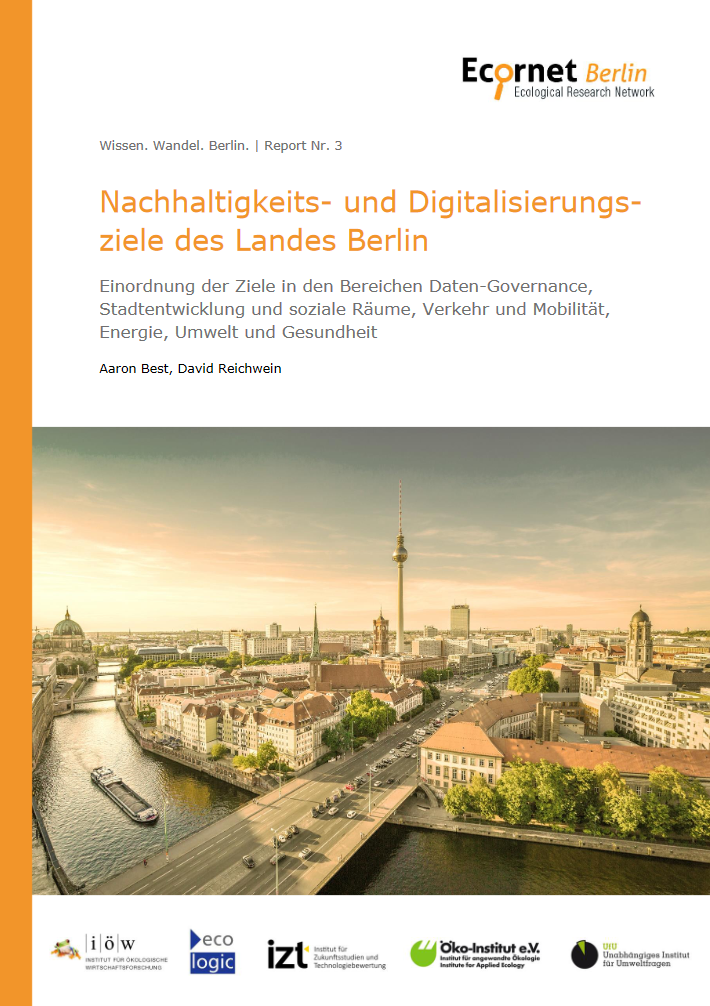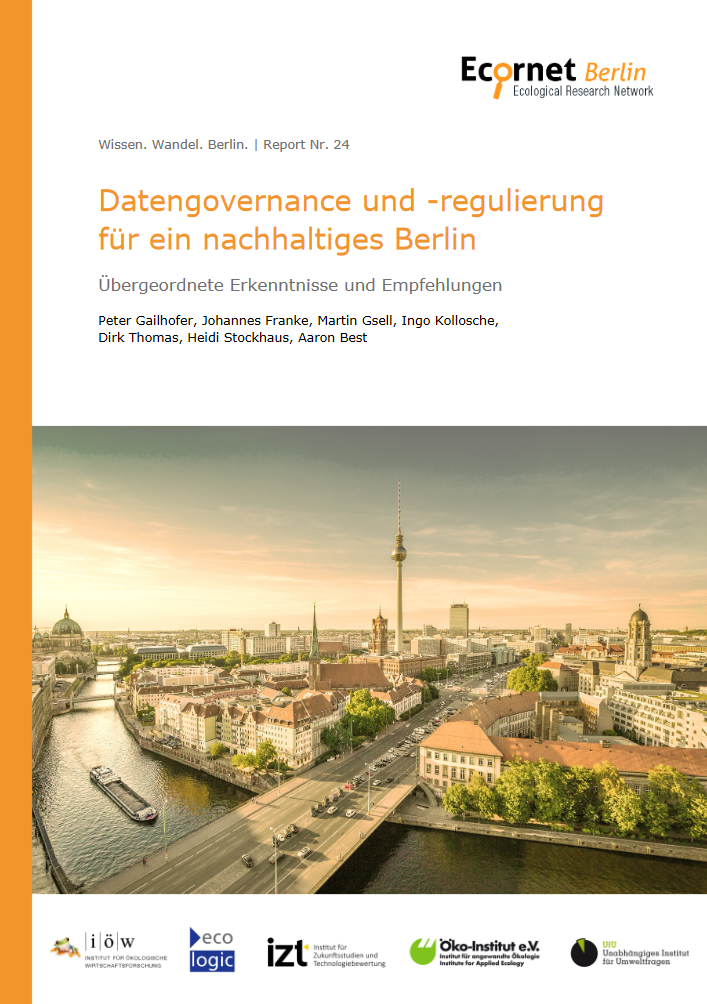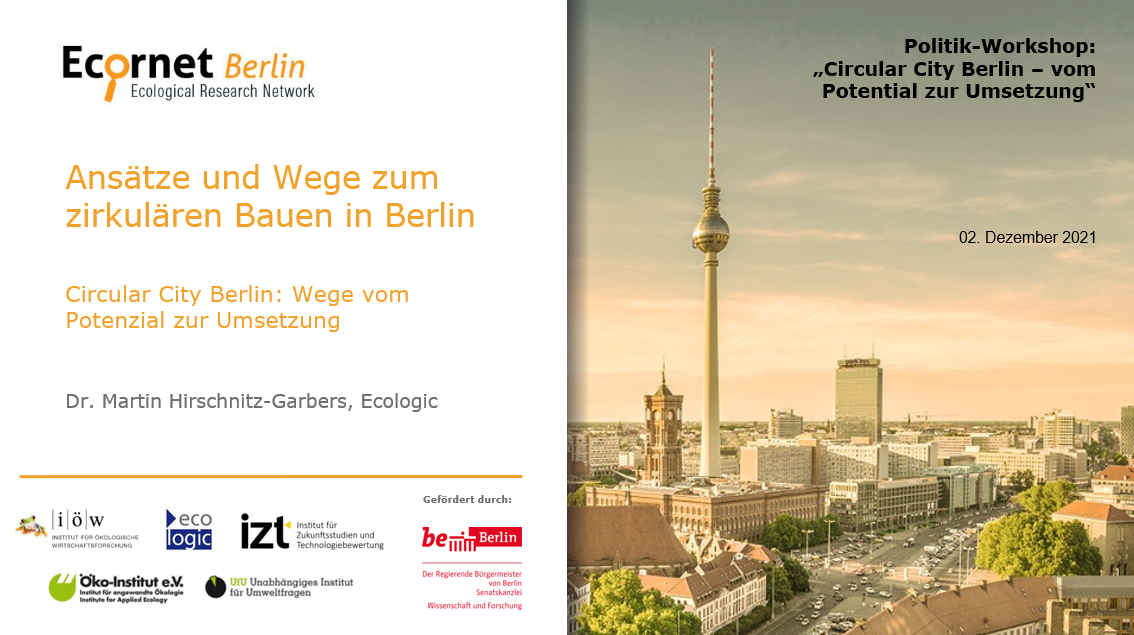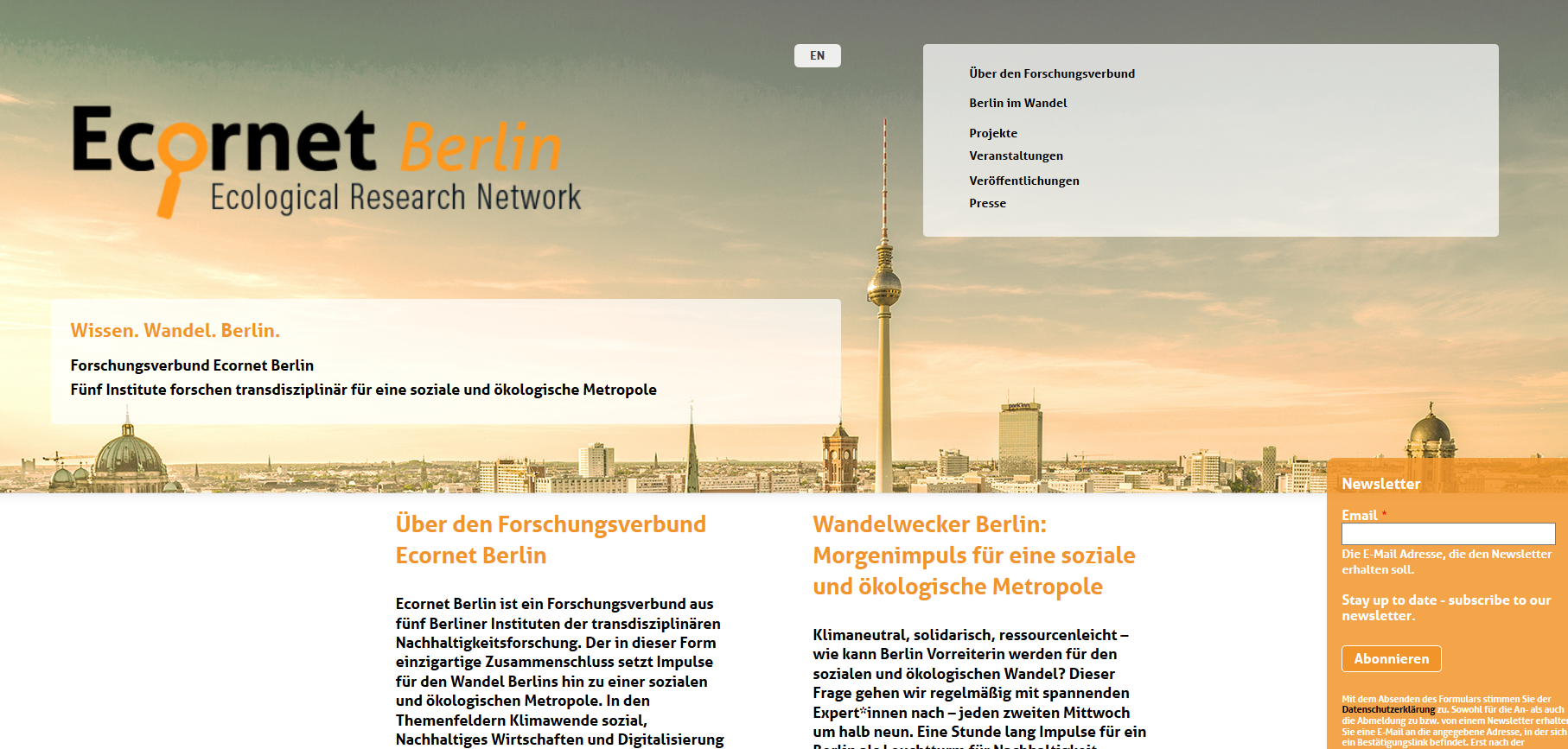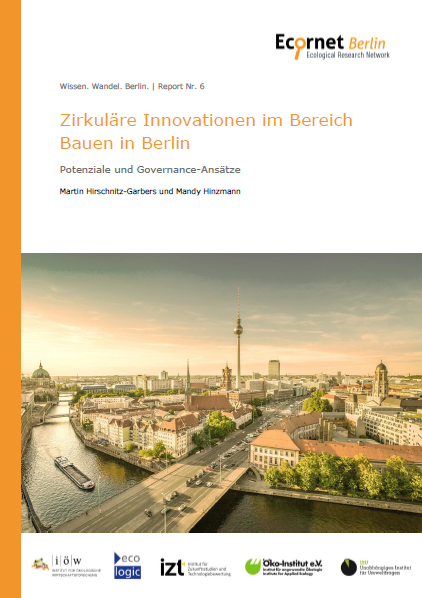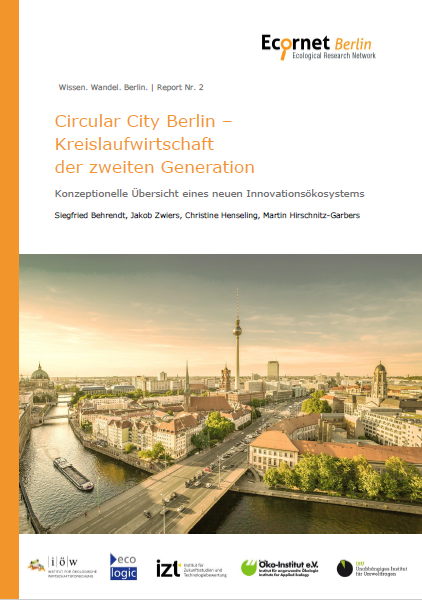Nachhaltige Datenregulierung für die Kreislaufwirtschaft in Berlin
Hintergründe und Policy-Empfehlungen
- Publication
- Citation
Best, A. & Stockhaus, H. (2022). Nachhaltige Datenregulierung für die Kreislaufwirtschaft in Berlin – Hintergründe und Policy-Empfehlungen (Wissen. Wandel. Berlin. Report Nr. 21). Berlin: Ecologic Institut, Forschungsverbund Ecornet Berlin.
This paper examines the concept of an "extended" digital product passport from a socio-ecological perspective using the example of batteries for electric vehicles. It evaluates different approaches to data regulation and formulates policy recommendations for decision makers in Berlin. It is based on preliminary work from the project, in which in particular three ideal types of data regulation and a methodology for their scenario-based evaluation were developed.
Digitization will play an essential role in facilitating the transition to a circular economy. One relevant technological approach is the digital product passport, which provides information about a product that is relevant to its entire life cycle. This can be information that enables a more informed purchasing decision, facilitates repair, enhances reuse, as well as enables proper disposal. In general, the digital product passport is designed to be a static repository of information about a product type, i.e., it does not capture information about the use phase of an individual product of that type. However, for some products, such use-related information could support second-life applications. Such an "extended" digital product passport could also provide information about individual products, including relevant information from their use phase. A first application example for this approach is the current political and technological developments for large battery systems used in electric vehicles and industrial applications.
